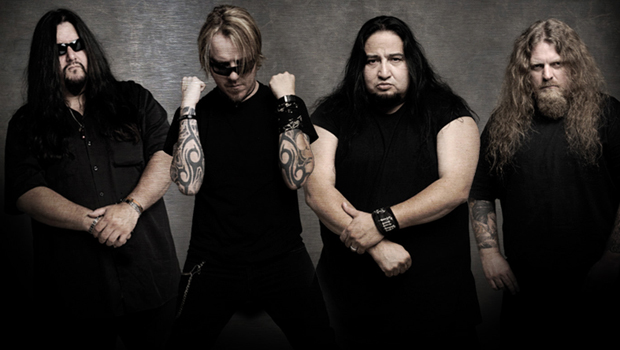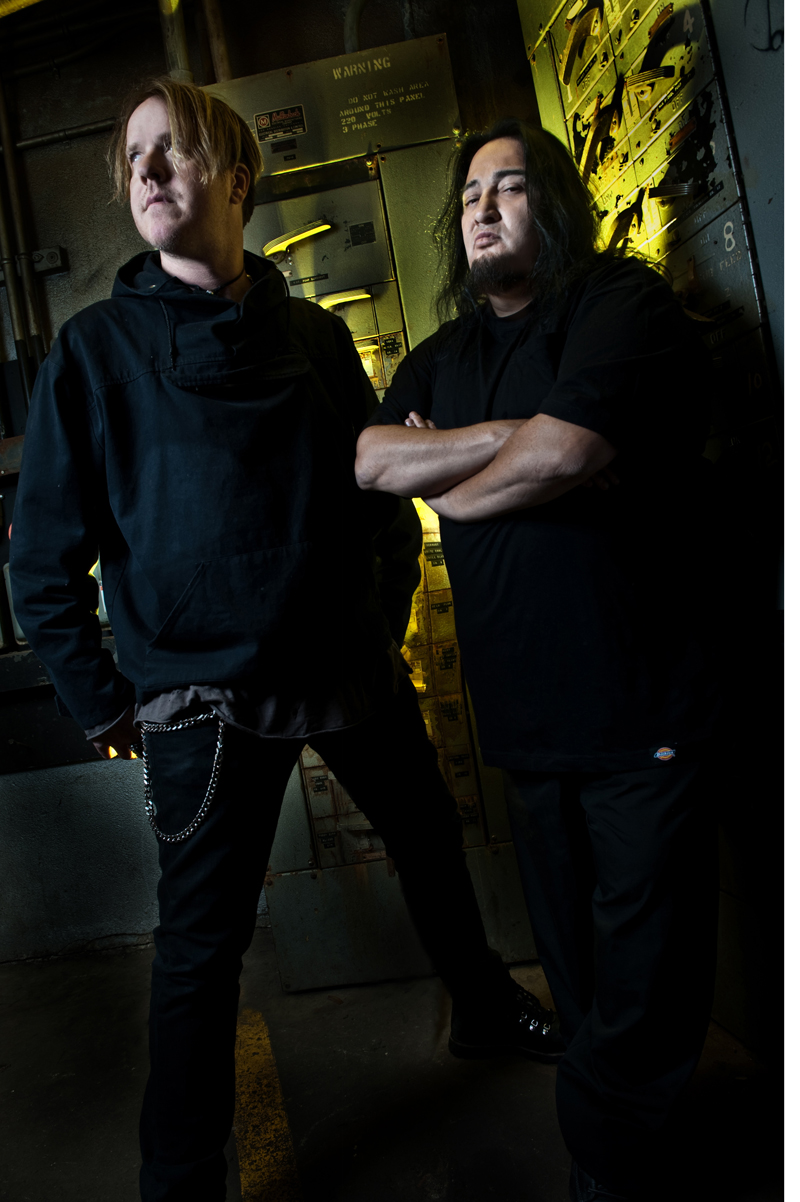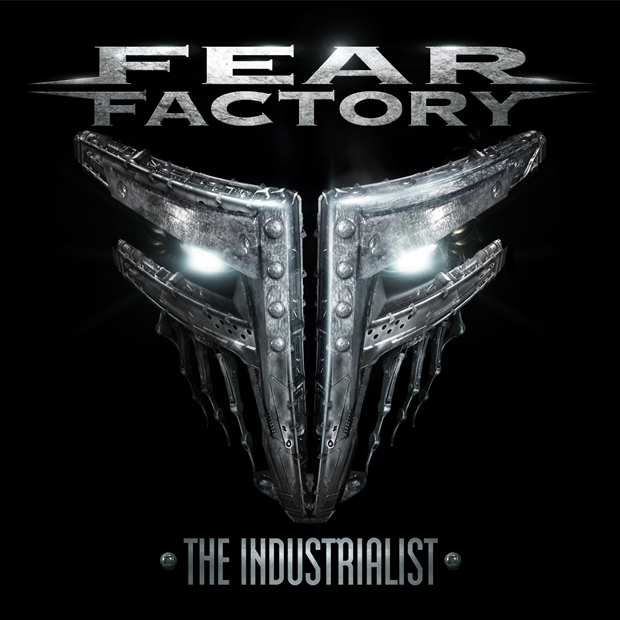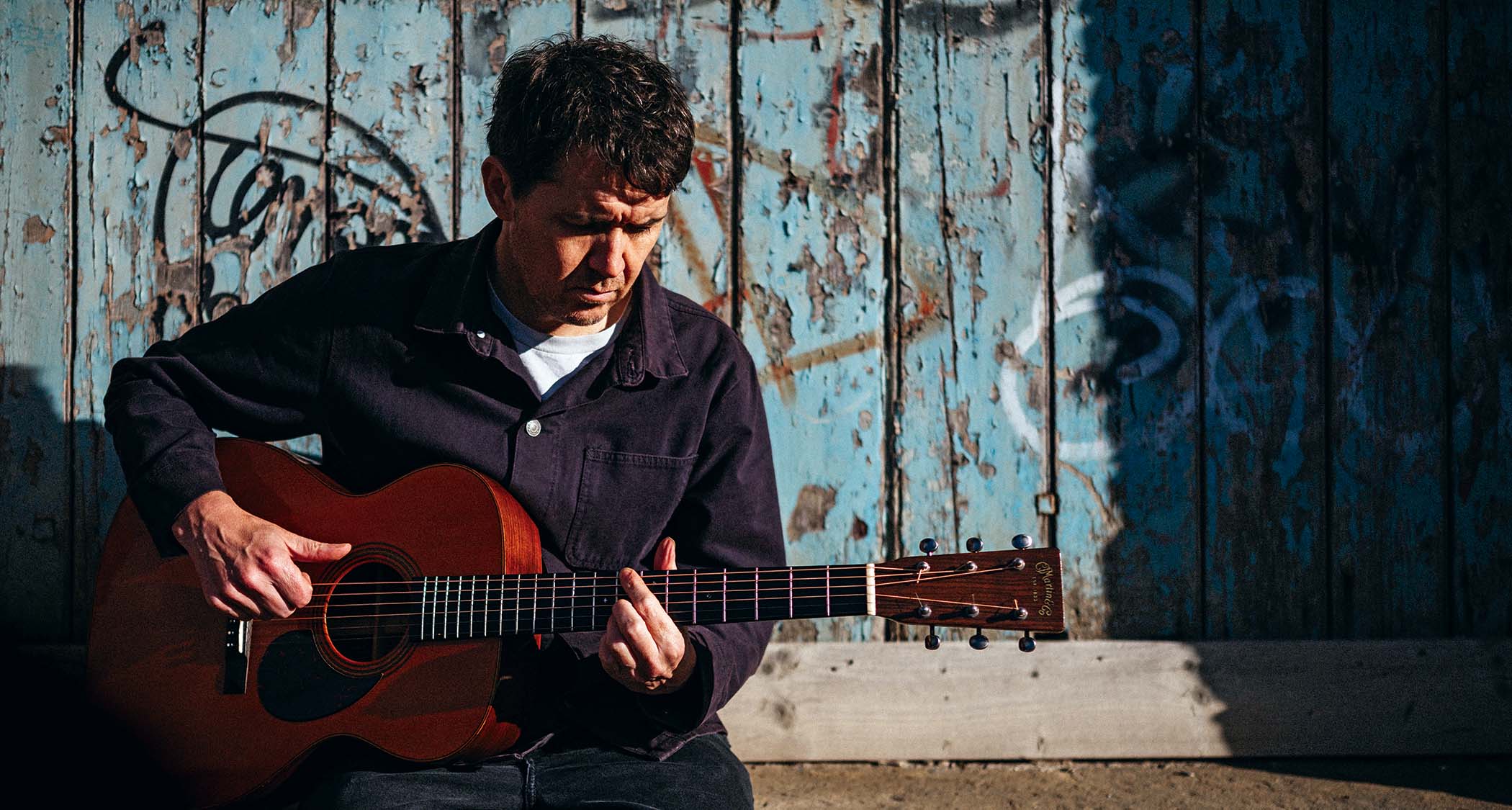Interview: Fear Factory Guitarist Dino Cazares Discusses Making 'The Industrialist,' Lineup Changes and Gear
All the latest guitar news, interviews, lessons, reviews, deals and more, direct to your inbox!
You are now subscribed
Your newsletter sign-up was successful
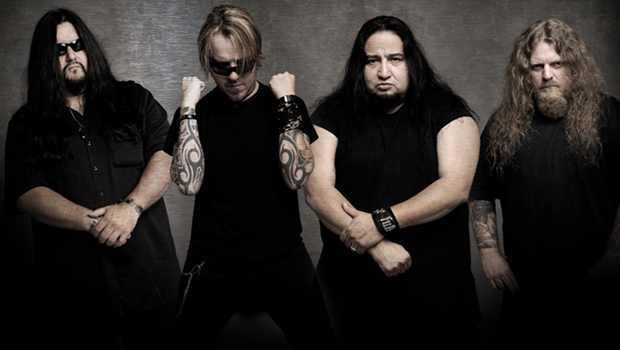
After welcoming guitarist Dino Cazares back into the band and putting out a successful seventh studio album, Mechanize, in early 2010, modern metal giants Fear Factory have returned.
Their follow-up album, The Industrialist, is ready to release early next month. This conceptual record also features bassist Matt DeVries, who replaced Byron Stroud.
I caught up with Cazares on May 15 to discuss the making of the album, lineup changes and his gear setup. Read the conversation below, and check out Fear Factory's Facebook page for up-to-date info on the album and the band's tour dates.
GUITAR WORLD: Your new album, The Industrialist, is coming out June 5, and it's supposed to be a concept album. What's that all about, and how did you guys decide to do a concept album?
Well, we've always been doing concept records ever since the early days, from Demanufacture, Obselete, Digimortal and so on, but this time we decided to take it a little bit further. We've always been presenting the concept of man versus technology and man versus machine. The past records have been about the perspective of the human, but this one is about the automaton, which is a robot.
The concept is about his perception, what the automaton sees, what he feels and what he learns. He's basically a robot that collects memories and stores them. He's fighting for his life, and for other automatons. We as humans built the automaton to help us for everyday life, but he basically turns against humans. And that's what the story is about.
Do you think the music also is a story in itself, as in, the songs are linked to each other?
All the latest guitar news, interviews, lessons, reviews, deals and more, direct to your inbox!
They are roughly linked to each other, yes. Burton wrote the whole story to fit with the order of the songs. So they are linked together. Musically I believe I tried to capture the soundtrack of what I saw visually in my head. I tried to write the soundtrack to the story. That's basically what the album does.
The previous album, Mechanize, was your first album since your return to the band. This one is coming out almost exactly two years after that. Would you say it was easier for you to write this one, because you've been with the band for a couple of years?
Well, every project I worked on, I've tried to put as much as I possibly can. I dedicate myself to the project, and nothing really is too difficult for me. There are times where we go through small periods of writer's block, but for me, I don't really go through that too much. So it comes pretty quickly. Me and Burton started Fear Factory in 1999, so Fear Factory is in me. Every other band that I play in, you can hear my style, and you can hear Fear Factory in everything I do. So, this record was easy, not easier than the last record.
On that previous album, I believe you used 8-string guitars. On this album, have you tried anything new in terms of your gear, or have you stuck to the same thing?
I basically still use the 8-string guitar and the 7-string guitar. On the majority of the songs, it's the 7-string, but a handful of songs have the 8-string. So yeah, I basically used the same stuff, Ibanez guitars with Seymour Duncan Blackout pickups, going to Line 6 Pod HD direct into the computer.
With 8-string guitars, I sometimes think guitarists don't really make use of the extra strings. What makes you decide you have to use an 8-string instead of a 6-string?
For me, it's the lower tuning and the tension. If I wanted to tune my 7-string lower, I have to get the thick strings, and the tension would be really sloppy. So for me, using the baritone 8-string definitely helps out with the tension on the low strings. Obviously you want to try to be heavy. I only use the 8-string on the slower songs. When I use it to play fast, it doesn't always come out that great. So I only use it on the slower songs. For me, I can do a lot more harmonies, a lot more octaves with the low F to the higher strings, and it opens up my playing quite a lot. I use a lot of harmonies on the songs, and the 8-string works perfectly for that purpose.
There were quite a few lead guitar parts and solos on the Mechanize album, which was something new for Fear Factory. This time, what was your songwriting approach?
I believe the songwriting on this record is much more definitive of Fear Factory. Mechanize was a record on which Gene Hoglan was playing drums with us. There was a lot more of thrash element in certain parts of the album. But on this record, our approach was that we used a drum program on the computer. Basically, me and Burton decided to take control of creating the record ourselves, of course, with the help of Rhys Fulber, our producer. But in the beginning, we decided to do it ourselves so that it would be more of us, more of Fear Factory, and less thrash. A lot less guitar solos, but very ripping, very fast and hard-hitting. I think this record is more classic Fear Factory.
I do agree with that, because it does sound like classic Fear Factory. But I was going to ask you about the drummer thing. You programmed the drums on the album, but what's the situation when you're on tour. Who's your live drummer?
It's called a Mac computer. He's our drummer [laughs]. No, but seriously, we have a live drummer. His name is Mike Heller, and he is in a band called Malignancy. He is playing all the songs and doing a great job. I think right now we are tighter. We feel like a really tight unit right now. We've got Matt DeVries on bass. He was the guitar player in Chimaira, but he's playing bass for us. For Fear Factory, we always wanted our bassist to be like a second guitar player. So Matt pretty much does everything I do, and it definitely makes us really tight on the low end part. Then you've got Mike Heller on drums who's a very tight drummer, very technical and just super solid. I think our band right now, me, Matt and Mike are very tight with each other. Very locked.
Speaking of these changes, obviously Byron Stroud was the bassist and Gene was with you guys. You did so many shows after Mechanize was released. You toured everywhere, on your own and with Metallica as well. So do you feel like it's a big change for you with these two guys now not in the band?
No, not at all. I didn't feel like it was a big change at all. I mean, of course we miss them as friends, because we toured with them for the last three years, but everybody does their thing. Byron is playing in 3 Inches Of Blood now and Gene is playing in .. every band [laughs]. Gene is one of those drummers that everybody needs. You're lucky if you get him, you know what I mean? Right now he's doing Testament, he's doing Dethklok, he's doing a lot of stuff. But I do believe we have really good, solid players in Mike Heller and Matt DeVries. The band sounds really tight and solid, and I'm really happy about it. I wouldn't pick shitty musicians.
And then of course, there's your vocalist, Burton. I think his clean vocals have been getting better and better, and this is the best he's sounding. Of course, he's always been good when it comes to the aggressive style of vocals. Do you feel that as well, about his clean vocals?
We really paid attention to vocals on this record. We wanted to make sure that he sounded the best. We wrote songs in his more natural key, if you know what I mean. Everybody has a certain pitch that they can hit. If it's too high, you can't reach it. So we not decided not to go that high, and we kept everything within his vocal range. I think that was a very, very comfortable and natural range for him, and that's why he sounds the best in that range.
Coming back to your gear, you still have other bands like Divine Heresy and Asesino. Does your setup and gear change from Fear Factory to those bands?
It changes. I've used different stuff on recordings. For some of the Divine Heresy stuff, I've used a Marshall and a Peavey 5150 together. I've used the 6505 on some recordings with Asesino and Divine Heresy, but the majority of my stuff for Fear Factory is through Line 6. It has got more of a digital tone, and it has a certain responsiveness and tone that suits Fear Factory.
The album comes out pretty soon, so what are your touring plans for the rest of the year?
We're on tour right now [laughs]. We started two weeks ago in South America, and now we're doing this US tour. And then when we're done, we fly to Europe to do a bunch of festivals with Metallica and a bunch of bands. Then in July we start the Shockwave Tour, which is a run through US and Canada, and it goes into August. In September, we go to Australia, New Zealand, Japan and October to December, we'll be going back to Europe for the headlining tour. So we're pretty much all booked up all year.
That sounds great, man. The final question I have for you is, you've also been known to be a producer, taking care of bands in the LA area and stuff like that. Have you been doing any of that lately, or did you just not get the time?
I don't have the time at all. I'm trying to finish the next Divine Heresy record and the next Asesino record, so that's where a lot of my time has been going lately. Ever since I finished the Fear Factory record, I started working on the other ones. So that's my main goal, because both Divine Heresy and Asesino have a strong following in their own little genre. Asesino is the hardcore Latino genre of music, and we're strong. With Divine Heresy, we've got a fan base as well. So I have to finish those records.
Andrew Bansal is a Los Angeles-based writer who has been running his own website, Metal Assault, since early 2010, and has been prolific in covering the hard rock and heavy metal scene by posting interviews, reviews and pictures on his website -- with the help of a small group of people. Besides being hugely passionate about heavy metal, he is an avid follower of jazz music and recently started a blog called Jazz Explorer to pursue that interest.
